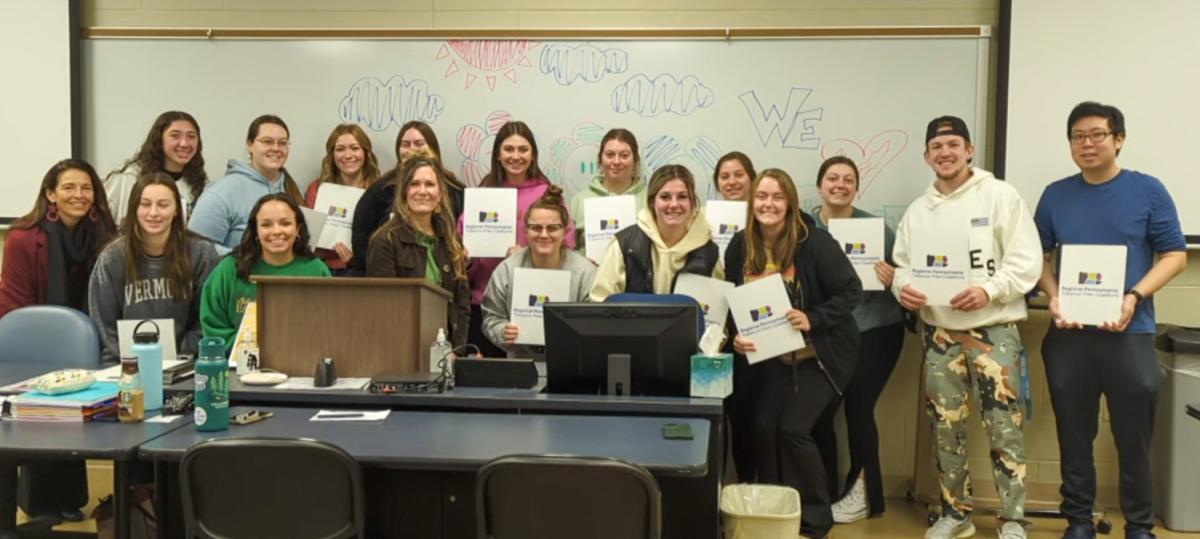Nursing students empowered to help patients quit tobacco, nicotine
Published 10.26.2023
Photo provided by the School of Nursing & Health Sciences

Meredith Bigger, a specialist in health promotions for the American Lung Association in Pennsylvania, joined the Pediatric Nursing class on Tuesday to share with the future health care professionals a simple, three-step process to prevent lung disease:
- Ask about smoking and vaping
- Advise: 480,000 people die each year from preventable tobacco disease from smoking and vaping
- Connect to 1-800-QUIT NOW (It’s free.)
Bigger called the presentation a success: “While all the students shared that none of them had heard of the Pennsylvania Free Quit Line (1-800-QUIT NOW) prior to my presentation, they certainly are prepared, moving forward, to assess and refer tobacco and nicotine users to this free service in their professional and personal encounters with tobacco- and nicotine-using individuals.”
Bigger shared that, according to the Surgeon General’s Report in 2020, four out of every nine adult smokers who saw a health care professional in that year did not receive advice to quit.
“When I heard that, I was shocked, and we are working hard to change that,” she said. “Bringing the Quitline information and offering Quitline Referral trainings to practicing health care professionals, as well as to student nurses and med students in Pennsylvania’s colleges and universities, will make a big difference, and it will save lives!”